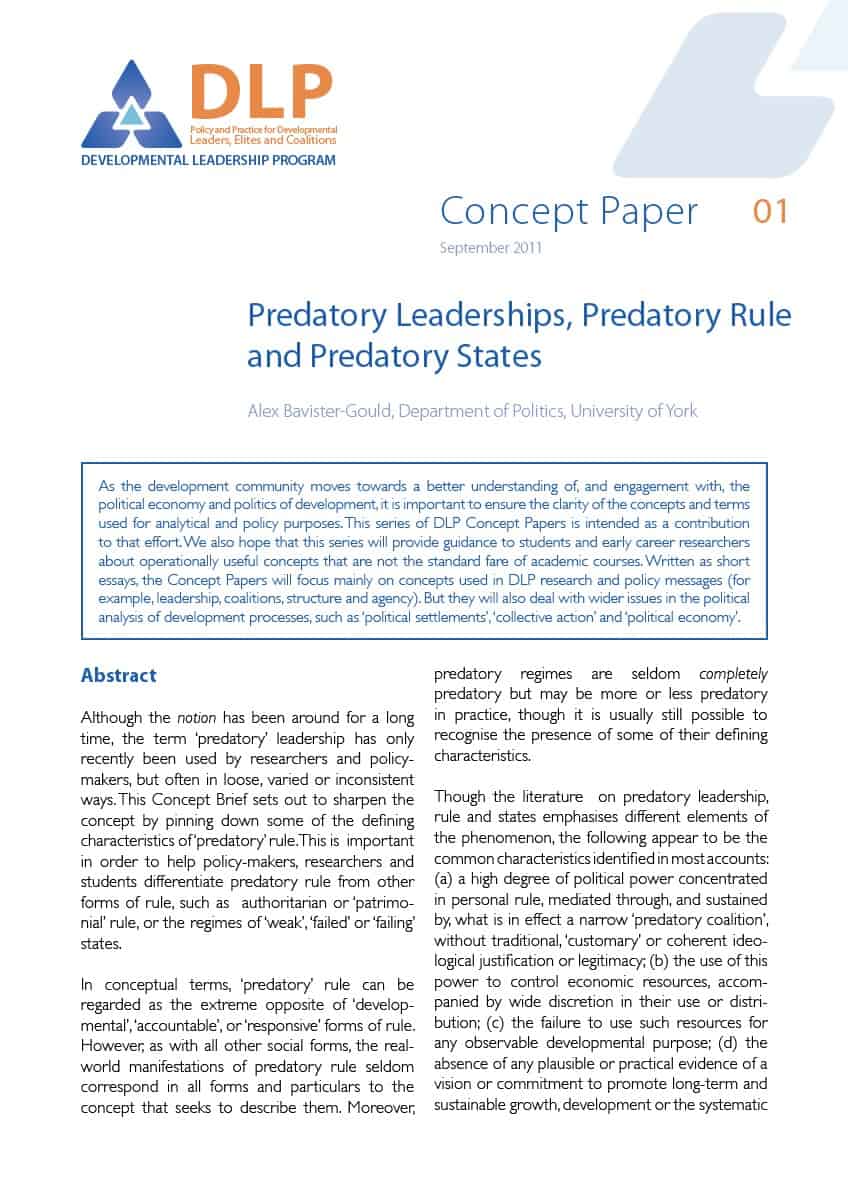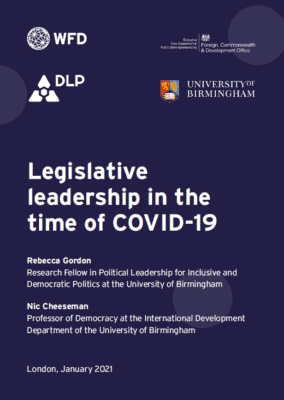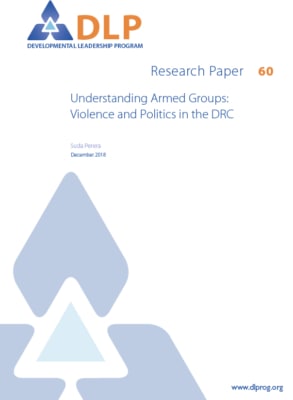Although the notion has been around for a long time the term ‘predatory’ leadership has only recently been used by researchers and policy makers, but often in loose, varied or inconsistent ways. The concept brief sets out to sharpen the concept by pinning down some of the defining characteristics of ‘predatory’ rule. This is important in order to help policy makers, researchers or students differentiate predatory rule from other forms of rule, such as authoritarian or ‘patrimonial’ rule, or the regimes of ‘weak’, ‘failing’ or ‘failed’ states.
In conceptual terms predatory rule can be regarded as the extreme opposite of ‘developmental’, ‘accountable’ or ‘responsive’ forms of rule. However, as with all other social forms, the real world manifestations of predatory rule seldom correspond in all forms and particulars to the concept that seeks to describe them. Moreover, predatory regimes are seldom completely predatory, but may be more or less predatory in practice, though it is usually still possible to recognise the presence of some of their defining characteristics.









